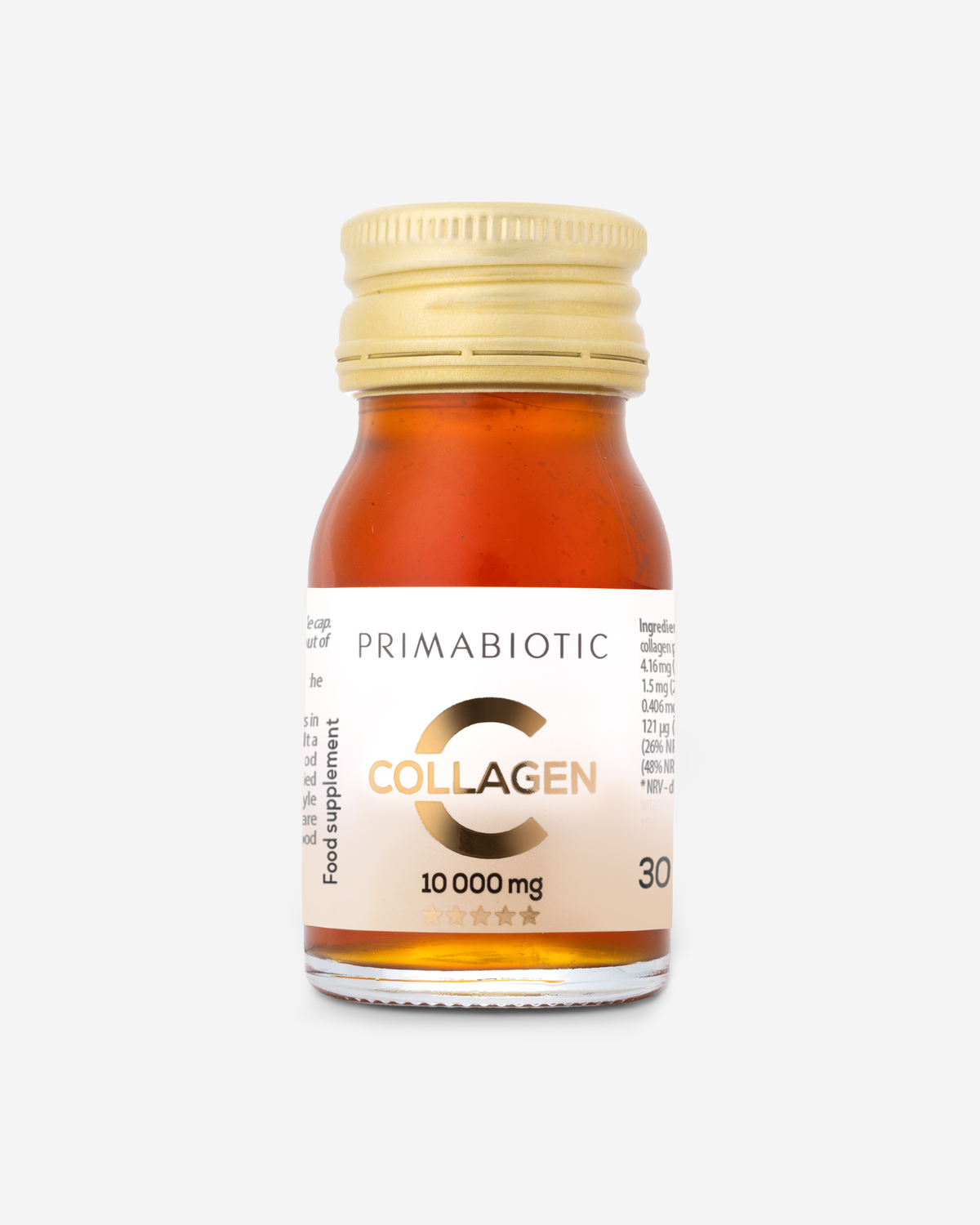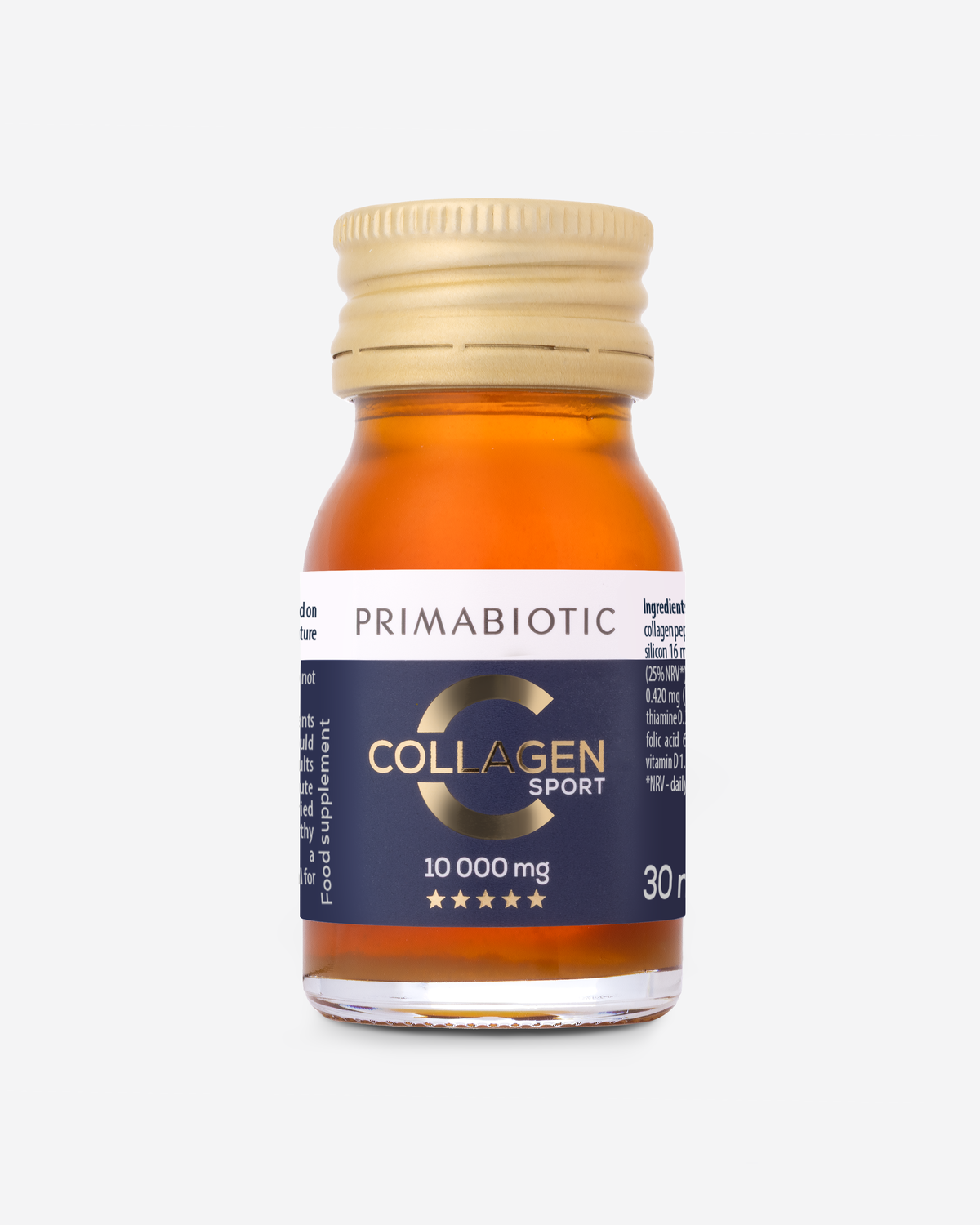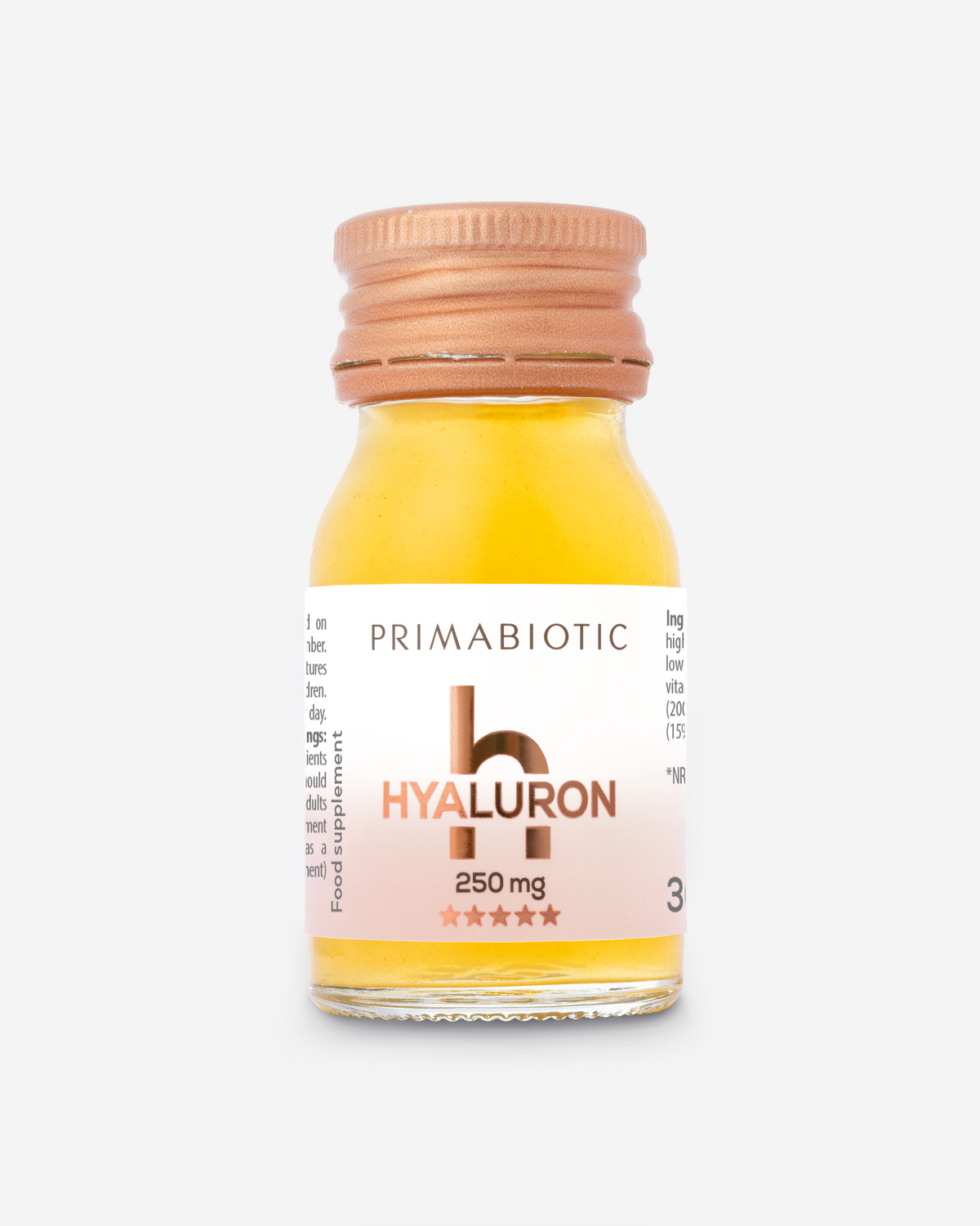During periods of increased risk of viral or bacterial infections, it's worth supporting your body's defenses with products that boost immunity. In reality, the proper functioning of our immune system depends on our overall lifestyle, including a balanced diet and supplementation, which complements a holistic approach to health. So, what immune-boosting products should you choose?
Best Vitamins for immune system
Nutritional status has a significant impact on the body's immune response. Malnutrition, especially a deficiency in essential micronutrients, can weaken the body's ability to fight infections. Immune-supporting vitamins play a crucial role in strengthening the immune system. So what should you take for immunity? Here are the key vitamins that help boost it:
Vitamin D
Vitamin D has a significant influence on our immune system. Research shows that adequate levels of this vitamin can help regulate immune functions, potentially lowering the risk of infections and autoimmune diseases. Furthermore, a vitamin D deficiency has been linked to various health issues.
Regular and consistent intake of vitamin D is important for long-term effectiveness. It can be obtained through sun exposure and certain foods such as fatty fish and fortified milk. However, meeting daily requirements through diet alone is practically impossible, which is why supplementation is recommended.
Vitamin C
Vitamin C is essential for our health as it acts as an antioxidant and supports the immune system. Studies show that vitamin C can reduce the production of inflammatory substances in the body, which may help control excessive immune responses, particularly in newborns and individuals with illnesses.
It also influences how macrophages – immune cells – respond to inflammation. Laboratory studies have found that vitamin C supports a diversity of immune cells that protect the body from disease. Additionally, it enhances the function of natural killer (NK) cells that target cancerous cells.
Vitamins E and A
Struggling with low immunity? These two vitamins can help! Vitamins E and A play key roles in supporting immune function. Vitamin A influences immune cell activity and helps maintain the health of mucous membranes, which are vital for defending the body against infections. Vitamin E acts as a powerful antioxidant, protecting cells from damage and enhancing immune responses.
Supplements to Boost Immune System
Immunity-boosting supplements can support the body in fighting infections and enhancing natural defense mechanisms. However, it’s essential to choose them wisely and from trusted sources. So, how can you strengthen your immune system, and what supplements are worth considering?
Colostrum
Colostrum is a secretion produced by mammary glands shortly after childbirth and is essential for newborns as it supports their immunity and development. It contains high levels of immunoglobulin G (IgG), which provides passive immunity. Colostrum also has antimicrobial and anti-inflammatory properties, making it a valuable aid in combating various diseases. Bovine colostrum benefits not only children but also adults with weakened immune systems.
Omega-3 Fatty Acids
Polyunsaturated omega-3 fatty acids – especially DHA (docosahexaenoic acid) and EPA (eicosapentaenoic acid) – play a vital role in the human body. In addition to being structural components of cells, they possess anti-inflammatory and antioxidant properties and significantly influence immune system functioning.
Unfortunately, studies show that we often don’t consume enough of these acids. The recommended daily intake is at least 250 mg of combined EPA and DHA. During periods of low immunity or higher infection risk, their intake becomes even more important. Omega-3s also promote the production of anti-inflammatory agents and activate macrophages that eliminate harmful microorganisms.
Probiotics
Studies have shown that probiotics enhance cellular immune responses. They reduce the risk of infections (for example, seniors taking probiotics were 2.6 times less likely to catch a cold compared to those taking a placebo).
Research also confirms that probiotics help prevent upper respiratory tract infections, shorten infection duration, and reduce the need for antibiotics.
Even short-term supplementation (3–12 weeks) can improve immune function and increase resistance to illness. Since immunity is closely linked to gut health, probiotics are an excellent choice as an immune-boosting supplement.
Herbs for Immune System
Looking for natural ways to avoid colds? These immune-supporting herbs deserve a place in your home medicine cabinet:
- Ashwagandha – Adaptogenic effects, antioxidant properties.
- Echinacea purpurea – Supports immune system function.
- Ginger – Anti-inflammatory, boosts immunity.
- Ginseng – Enhances immune response, strong antioxidant.
- Turmeric – Powerful antioxidant.
- Elderberry – Supports immune health, relieves upper respiratory irritation.
- Rhodiola rosea – Offers antioxidant protection.
How to Boost Immunity?
The best way to support immunity is through a proper diet rich in vegetables and fresh fruits. These foods supply essential vitamins that support the immune system. For instance, elderberries contain antioxidants that help reduce inflammation – a key factor in low immunity.
Physical activity is also important. Regular exercise like walking, jogging, or strength training improves circulation and strengthens immune function.
Sleep is just as essential. Aim for at least 7–8 hours of sleep per night, as it’s critical for the body’s regeneration.
Immune Boosting Foods
- Selenium, which boosts immunity, can be found in mushrooms, sardines, garlic, broccoli, Brazil nuts, tuna, and barley.
- Zinc, another vital mineral, is present in lean meats, wheat germ, oysters, crab, poultry, chickpeas, and eggs.
- Folic acid, often added to cereals and bread, naturally occurs in beans, peas, and leafy green vegetables.
- Vitamin B6 is found in chickpeas, fish, and bananas.
- Vitamin C sources include leafy greens like spinach and kale, as well as citrus fruits, Brussels sprouts, bell peppers, strawberries, and papaya.
- Vitamin E is found in nuts, almonds, sunflower seeds, and broccoli.
- Vitamin A can be supplied through a colorful variety of foods like carrots, sweet potatoes, and leafy greens.
A varied and colorful diet helps meet the body's vitamin A needs and supports immunity. Regular consumption of these healthy foods will strengthen your immune system — and you’ll likely forget what low immunity feels like!
Don’t Forget About Omega-3s! Where can you find them in your daily diet? The richest sources of EPA and DHA are fatty sea fish such as salmon, mackerel, herring, eel, anchovies, and sprat. It’s recommended to eat at least 100 g of these fish twice a week. If you don't consume fish, consider omega-3 supplements, especially during autumn and winter months, to boost your immunity.
See similar entries:






